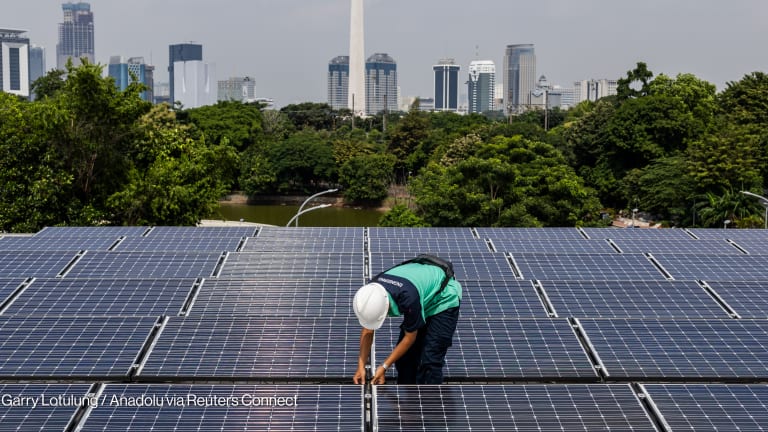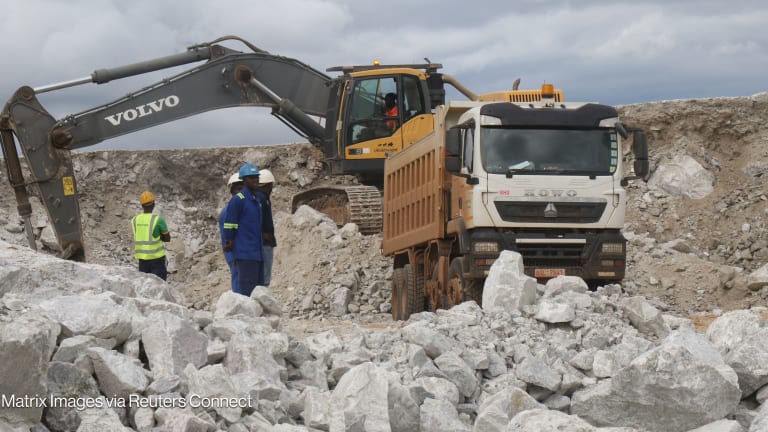
While some world leaders, such as South Korean President Moon Jae-in and French President Emmanuel Macron, have spouted lofty rhetoric about phasing out coal and other forms of dirty energy domestically, their pledges ignore their countries’ contributions to climate change outside their borders.
Although at least seven major countries — including Canada, France, and Germany — have made commitments to phase out coal power domestically, their export credit agencies, or ECAs, have poured money into coal plants and other fossil fuel projects in other countries.
According to a new report by Friends of the Earth U.S. and Oil Change International, ECAs annually fund $32 billion worth of projects in the oil and gas sector alone. That is 11 times more than what ECAs provide to clean energy projects.
What are ECAs and why should you care?
Export credit agencies are powerful institutions that provide government-backed loans, guarantees, insurance, and credits to projects overseas in the hopes of boosting their home countries’ exports and jobs. The agencies are also major contributors to climate change. Many ECA investments are for risky fossil fuel projects that might not receive private financing or otherwise come to fruition.
In the past, ECAs have provided hundreds of millions, if not billions, of dollars to projects that have resulted in massive pollution, destruction of local communities’ land, and even death. For instance, at least 27 people died as the result of an ECA-supported liquefied natural gas project in Papua New Guinea. In addition, local air and water pollution at the ECA-supported Sasan coal plant in India and Kusile coal plant in South Africa have caused illness such as asthma and poisoned local crops.
There are some restrictions — but not enough
An international body that many ECAs are a party to — the Organization of Cooperation and Development Export Credit Group — has implemented restrictions on financing of some coal plants. Unfortunately, these restrictions are not enough to stem the destructive financing of ECAs. First, they only prohibit ECAs from supporting a small subset of coal plants. These agencies are still allowed to finance coal plants that are located in the least developed countries or are more efficient. In addition, ECAs are not banned from investing in all related infrastructure, such as coal mining equipment and rail cars to transport coal.
What needs to happen next
Export credit agencies both within and outside this group must expand these restrictions so that they cover not only all coal plants and related coal infrastructure, but the oil and gas sector as well. If ECAs immediately phase out their support for fossil fuel projects, the climate and local communities impacted by the air and water pollution from these projects would reap immense benefits.
An end to ECA’s support of fossil fuels would probably stop many dangerous projects from going forward. One is a coal plant in Vietnam — Long Phu 1 — that would produce at least 6.3 million tonnes of carbon dioxide each year. Another project is the development of liquefied natural gas in northern Mozambique, which has already destroyed the land of local communities and endangers unique ecosystems such as mangroves and coral reefs. The project also threatens to be catastrophic for the climate with the release of huge amounts of methane, a greenhouse gas that is 87 times as potent as carbon dioxide over a 20 year timeframe. Not funding these and similar projects would leave governments with tens of billions of dollars to use on keeping communities clean and safe and providing sustainable renewable energy to all.
Join the Devex community and access more in-depth analysis, breaking news and business advice — and a host of other services — on international development, humanitarian aid and global health.








